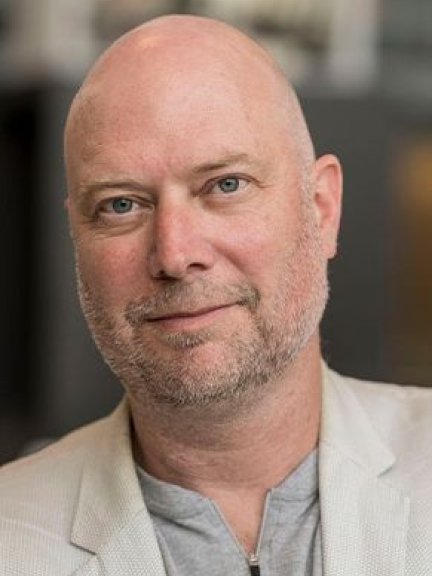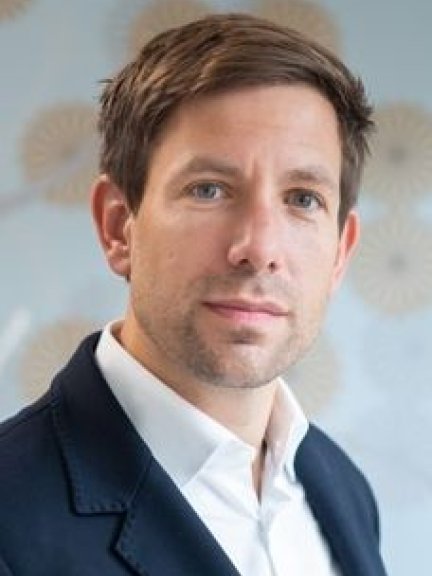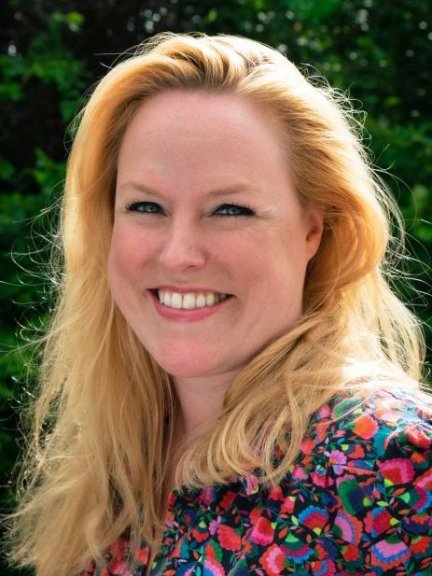Grand Opening
Tuesday April 5, 12:30 - 14:00
The Grand Opening of this week will be hosted by APH program leader of Mental Health, Arne Popma (professor of Child & Adolescent Psychiatry at Amsterdam UMC). APH’s director Martine de Bruijne will kick off with a short introduction of the weeks’ program, followed by 2 keynotes from Christiaan Vinkers (psychiatrist and full professor ‘Stress and Resilience in Psychiatry’ at Amsterdam UMC) and Hanneke Hulst (health- and neuroscientist, philosopher and full professor 'Neuropsychology in Health and Disease' at Leiden University)
Societal awareness of the importance of mental health as a public health challenge is growing. In this session two top researchers will share their perspectives on how we can tackle some of the most pressing issues. I’m looking forward to moderate the Grand Opening and exchange ideas between the speakers and all attendees - Arne Popma
After the keynote lectures there will be a Q&A for all researchers to join.



Stress transcends traditional boundaries
Christiaan Vinkers, psychiatrist and full professor ‘Stress and Resilience in Psychiatry’ at Amsterdam UMC.
Christiaan will talk about stress and resilience. Is stress unavoidable, and are we experiencing more and more stress in modern society? How can we use stress and resilience to understand the emergence and persistence of mental and physical illness? To understand why some individuals are more vulnerable to stress whereas others are resilient, Christiaan will talk about the inherent capacity and necessity for stress to cross boundaries, whether it comes to integrating mind and brain, understanding stress patterns over time, innovation in psychiatric diagnostics and treatment, and promoting interdisciplinarity.
From molecule to mind
Hanneke Hulst, health- and neuroscientist, philosopher and full professor 'Neuropsychology in Health and Disease' at Leiden University.
Hanneke will talk about her latest research on multiple sclerosis (MS) and how insights into the underlying neurobiological factors of cognitive decline are insufficiently helping to improve patients’ quality of life and participation in society. She will present her plans to strengthen the brain and the mind of people with MS by making use of secondary prevention and an interdisciplinary approach.
Parallel research program sessions
Thursday April 7, 12:30 - 14:00
Towards sustainable elderly care for clients and professionals – SPH, ALL en QoC
Workshop 1: Sustainable elderly care: professional perspective
As the proportion of older individuals increases, shortages of workers in elderly care increase along. Healthcare workers are under pressure, and stress-related sick leave high; informal caregivers are becoming more and more important to support elderly in staying at home as long as possible. As most family caregivers combine caregiving with a paid job, this combination may lead to mental health problems. Older individuals are the most at risk population for poor communication with health care provides, due to declines in physical and cognitive functioning. Regardless, older individuals increasingly value to be involved in their care trajectory. To this end, information tailored to their needs and capacities is urgently needed.
In a series of two workshops, one from the perspective of professionals in (elderly) care, and one from the perspective of elderly clients, we invite all APH researchers to help solve the puzzle of how we can contribute to a sustainable elderly care system in the Netherlands.
Mental health and well-being in academia: interactive session on issues and solutions – HBCD
This year's HBCD session promises to be an inspiring and interactive one!
The first part of the session consist of a couple of short, informative presentations on mental well-being and lifestyle and on mental well-being of young academics in particular. These presentations are followed by an interactive session in break-out rooms for junior, medior and senior researchers on mental health issues in academia, their causes and potential effective solutions. We will create the opportunity to share a piece of your own mind with colleagues and guarantee you'll feel mentally energized after the session. Sign up!
AI en machine learning in Mental Health – MH
APH Mental Health houses unique cohorts and other data sources that could be utilized to answer important mental health research questions. AI and machine learning could help researchers to utilize their data more effectively, but knowledge on and experience with such techniques is still limited among researchers. In this session, we will have speakers with experience in AI and machine learning present on their application of such techniques in their research.
Personalized Medicine and the Quantified Self - PM
Both patients and healthy people are increasingly able to, and involved in, quantifying what goes on in their lives. Smart phones, with or without add-ons, can directly measure more and more processes of the body; there are increasing possibilities for monitoring daily activities, moods, eating habits, etc, etc.
‘Self knowledge through numbers’ is the battle cry of the Quantified Self movement. In this workshop, however, the focus will not be on self-knowledge, but on scientific knowledge: we will discuss the (un)usefulness of all the data gathered on all these smartphones and other devices, for patient-driven (initiatives such as ‘My Own Research’) and doctor-driven scientific research.
The workshop will consist of a brief introductory talk, followed by a discussion in break out rooms about experiences, advantages, and pitfalls using practical examples. We have found Wim Kamphuis, researcher at TNO and experienced in this type of research, to comment as an expert on the findings of the breakout rooms.
Thursday April 7, 15:30 - 17:00
Towards sustainable elderly care for clients and professionals – SPH, ALL en QoC
Workshop 2: Sustainable elderly care: (elderly) client perspective
As the proportion of older individuals increases, shortages of workers in elderly care increase along. Healthcare workers are under pressure, and stress-related sick leave high; informal caregivers are becoming more and more important to support elderly in staying at home as long as possible. As most family caregivers combine caregiving with a paid job, this combination may lead to mental health problems. Older individuals are the most at risk population for poor communication with healthcare provides, due to declines in physical and cognitive functioning. Regardless, older individuals increasingly value to be involved in their care trajectory. To this end, information tailored to their needs and capacities is urgently needed.
In a series of two workshops, one from the perspective of professionals in (elderly) care, and one from the perspective of elderly clients, we invite all APH researchers to help solve the puzzle of how we can contribute to a sustainable elderly care system in the Netherlands.
Impact of stressful life events: a global perspective – GH
The psychological impact of trauma is a global issue and a public health concern. The Global Health session will focus on the psychological impact of stressful life events from a global perspective. One major stressful life event experienced globally includes the coronavirus (COVID-19). COVID-19 is characterized by unpredictability, uncontrollability, and for many by a threat of death or serious injury. In the past years, the pandemic had an enormous impact on society and mental health in countries all over the world.
Program:
Chair: Miranda Olff
Global introduction & discussion: Marit Sijbrandij
- Stress responses to COVID-19 around the world by Chris Hoeboer
- Impact of COVID-19 on mental health around the world by Anke Witteveen
- Mental health complaints in Syrian refugees in The Netherlands by Anne de Graaff
- A web-based psychoeducation program for trauma related symptoms in Indonesian undergraduate students by Indira Primisari
Webinar Omdenken
Friday April 8, 12:30 - 13:45
'Omdenken' is the Dutch word for flip-thinking. It's a creative thinking technique that teaches you how to transform a problem into an opportunity. It’s a type of psychological jujitsu. It not only leads to a solution to an existing problem, but opens new vistas of possibility. This leads to a paradox: the more problems we confront, the better! This webinar offers an energetic and interactive introduction to flip-thinking in 75 minutes.
Register here!
After registration you will receive an Outlook calendar invitation.
We look forward to meeting you and your fellow researchers online!

